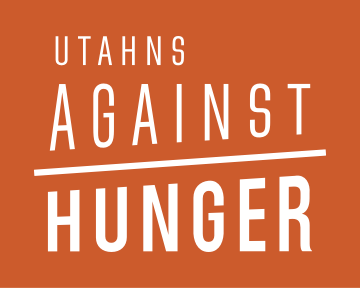In an effort to understand how emergency food pantries are being impacted by the economic fallout from the COVID 19 pandemic Utahns Against Hunger conducted an informal survey of 120 emergency food pantries statewide. The survey was conducted between April 1-14, 2020. The results provide some insight about the challenges being faced by pantries, the changes to their food distribution structures and identify critical needs they will need in order to continue to provide food for their communities.
As Utah responds to the ongoing COVID-19 pandemic, Utahns Against Hunger will be collecting and maintaining information on emergency food resources in the state.
P-EBT
P-EBT, or Pandemic EBT, is a federal relief program for parents of children receiving free or reduced lunch. If your children received or reduced lunch between March or May of 2020, look below to see if you qualify:
P-EBT Information and Resources
Benefits & Food Resources
Follow these links for resources related to key food assistance programs, and check below for more information about resources that are being made available during the pandemic response.
SNAP Benefits Emergency Food School Meals Food Assistance for Seniors WIC Program
We and all our partners are working hard to provide up to date information, but we are responding to a dynamic situation and circumstances at any given site are subject to change. Please call any service provider before visiting to make sure they are best able to help.
If you need help beyond food assistance or benefits: contact United Way, either at the 2-1-1 Utah website or by phone at 801-736-8929.
Utahns Against Hunger expresses its appreciation for the Governor Gary Herbert’s support of HB222, Start Smart Utah Breakfast Program. This legislation will increase access to school breakfast in hundreds of schools across the State. Offering breakfast after the bell will improve the lives of thousands of Utah children and ensure more Utah students will start the day ready to learn. Without the hard work of Representative Dan Johnson, Senator Lyle Hillyard, Senator Dan McCay and Senator David Hinkins, this important legislation would have waited another year. We also want to emphasize the important work by State Superintendent Sydnee Dickson, her leadership of the Board and Child Nutrition team, made HB 222 a priority. Community partners, the public and the media also played a critical role in elevating the importance of school breakfast and how it contributes to the success of all students.
Truly, this legislation was a successful team effort. We look forward to working with USBE on the implementation of this program.
Support our national partners and call Senator Romney now!
The Food Research and Action Partner has put out an alert, calling for our support in pushing to a more expansive stimulus package:
Now that H.R. 6201 - Families First Coronavirus Response Act has been signed into law, Congress must immediately pass a comprehensive stimulus package that will both stabilize the economy and provide direct aid to individuals and families during this public health and economic crisis. The Senate is still in session and is negotiating an economic stimulus package that is expected to respond to the economic upheaval that is gripping the country. Included in those conversations among Senate leadership are SNAP and the nutrition programs.
Act TODAY!
Call your Senators at (202) 224-3121 (Capitol Switchboard) or email them to urge that any COVID-19 economic recovery package must build on SNAP’s economic stimulus effects by:
- boosting SNAP maximum benefits by 15 percent
- increasing the minimum SNAP benefit from $16 to $30
- suspending all SNAP administrative rules that would terminate or weaken benefits.
These temporary provisions should be continued until the economy improves. There are other measures being negotiated through appropriations that would provide additional commodity support, targeted relief to the Food Distribution Program on Indian Reservations (FDPIR), additional funding for older adult nutrition programs, additional funding to support state and local WIC programs and CACFP sponsoring organizations, and administrative support to states that are already seeing strains on their systems. We support all of these efforts as well.
Check out FRAC’s page, Preparing for the Impacts of the Coronavirus on Health, Well-being, and Food Security, which provides up-to-date information on legislation, bill summaries, policies, and other important news.
You can also write Senator Romney's office here.
Our county fact sheets collect information on food resources throughout Utah. These sheets include lists of pantries, information on applying for SNAP and WIC, and information on other resources like meals on wheels services.
- Beaver County
- Box Elder County
- Cache and Rich Counties
- Carbon County
- Daggett, Duschene, and Uintah Counties
- Davis County
- Emery and Grand Counties
- Garfield and Iron Counties
- Juab, Millard, and Piute Counties
- Kane and Washington Counties
- Morgan and Weber Counties
- Salt Lake County
- San Juan County
- Sanpete, Sevier, and Wayne Counties
- Tooele County
- Utah, Summit, and Wasatch Counties
Utahns Against Hunger will also be tracking the status of school meals and child nutrition services during the response to the COVID-19 pandemic.
On Wednesday December 4, the Trump Administration published a final rule that will make it more difficult for some Utahns to maintain their SNAP eligibility. The targeted population are able-bodied adults without dependents, ages 18 through 49, otherwise known as ABAWDs.
